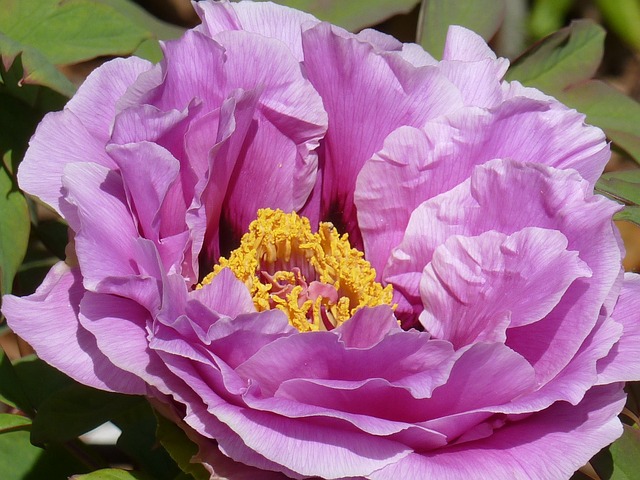
Many people are only just beginning to see how great an organic garden really can be. The easy to follow advice in this article is to help the would-be organic gardener get off to a great start. Just put these ideas and nutritious results.
The ambient temperate of a room with live plants is between 65-75 degrees throughout the daylight hours. The temperature needs to remain steady and warm so they may grow. If you think it would not be comfortable to keep your residence that warm in the winter, you could use a heat lamp on organic plants instead.
When helping organic plants flourish inside, it is important to consider the amount of light that is available to them. If the room you wish to grow them in faces in a direction that gets little light, find plants that can grow in medium or low-light environments. You could also consider using artificial lighting to help.
Preparing a plot for planting a perennial garden is easy. Use a spade to dig into the turf, then flip each piece over, then spread the area with approximately three inches of wood chips. Let the area sit for a couple weeks, then dig it and plan the new perennials.
Make sure you work in your garden. Don’t waste thirty minutes looking for a tool. Prepare them all ahead of time and have them handy before you need to garden, and then put them away neatly when finished. If you use lots of tools, purchase a tool belt or heavy duty pants with plenty of pockets.
Have some plastic bags on hand so that you may cover your gardening shoes if they are muddy.
Spacing is an important factor in gardening. You can underestimate how much space plants will need when they grow. Plan your garden carefully and put an appropriate amount of distance between seeds.
Use a laundry basket to gather your vegetables and fruits. This type of basket can double as a large colander for all your produce.
Treated Wood
Create a raised bed for your garden out of stone, brick or untreated wood.Choose wood that is resistant to rot and does not contain any chemicals. Some good choices include locust, cedar, and cedar. In a veggie garden, avoid using treated wood to enclose or demarcate different sections of your vegetable garden. If you have to use treated wood, consider using a liner to keep chemicals out of the soil.
If you sell or use organically grown produce in a commercial setting, you should get an organic garden certified seal. This will improve your sales and also prove to your faithful customers that they are getting healthy products.
Organic gardening can be more difficult than gardening with chemicals, but you will reap a greater reward. While the chemical companies claim great benefits, growing organically is a great reward to whomever eats your produce.
Add mulch to your soil healthy.The mulch in a garden also works to protect the soil under it. Mulch will keep the soil at an ideal temperature and protect your roots.It helps the soil retain moisture longer by reducing the hot sunlight. This can also a good way to control any weeds.
You may be able to skip watering for an entire day if rain is on the way.
The garlic will be matured when the green tops start to turn brown.
When setting up an organic garden, try planting only some seeds at once; then go back and plant an additional set of seeds in three weeks. This helps the entire harvest from being ready at any given time.
Native Plants
Organic gardening can be made easy with just a few simple and effective! Plan your landscaping with primarily native grasses, flowers, and grasses. If you opt for native plants that work well with your climate and soil, you won’t need special pesticides or fertilizers. Native plants will thrive if you encourage growth with only natural compost.
Try to make your organic garden a shade garden. You might be interested to know that these gardens are relatively easy to maintain. They also require a lot less watering, which saves a lot of work and time. The plants also grow slower, but this also means less weeds.
If you want to plant a new tree or shrub, it’s best that the hole you plant them in looks a bit off-balance. If your hole has several “glazed” sides created by the shovel, it may prove difficult for the roots to penetrate through the soil.
Use at least three inches of organic material to mulch flowers and flowers. This aids in environmental conservation and help it retain moisture more efficiently – which should help you reduce your water bills. You may also find the mulch attractive.
Organic Garden
Perfecting an organic garden is as simple as committing a little time, and being patient. Start utilizing the advice provided in this article today, and your organic garden will eventually become truly magnificent. The above hints will help no matter what you’re going to grow.